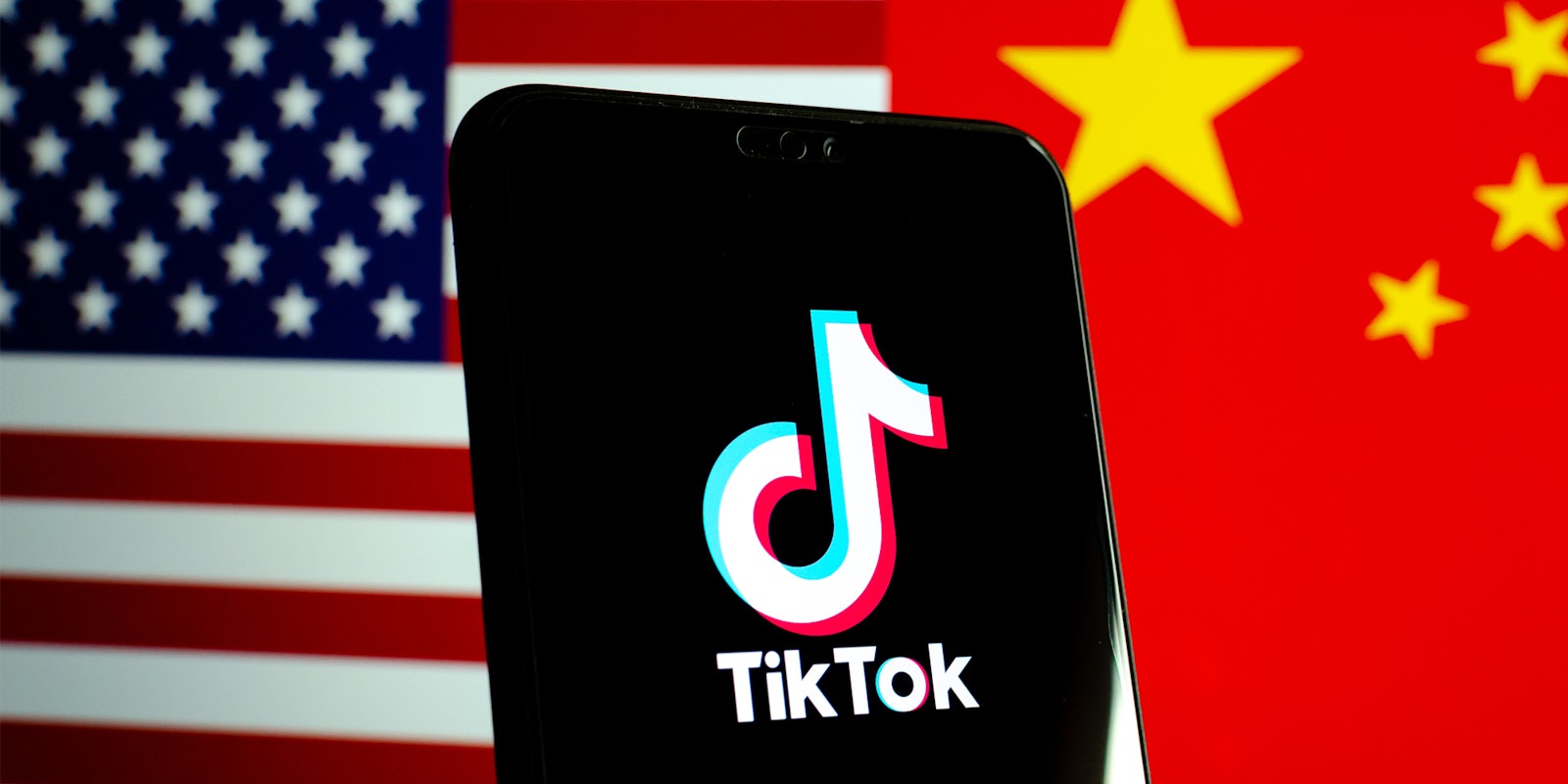TikTokers worried about a potential ban of the app in the United States have settled on who they think is to blame. And it isn’t President Joe Biden, Congress, Republicans, or even China.
It’s Mark Zuckerberg.
Last night, the Wall Street Journal reported the Biden administration threatened to ban TikTok if the company’s Chinese owners didn’t divest their holdings. The White House and Treasury Department both declined to comment on the news, according to the New York Times. The alleged threat comes after weeks of mounting pressure against the app. Last week, a bipartisan group in the Senate rolled out a plan to help the government force a TikTok sale. The White House immediately backed the legislation.
While the debate surrounding TikTok in Washington has primarily revolved around national security and protecting American data, TikTokers seem to think there is a larger ploy—one orchestrated by Meta, the parent company of Facebook and Instagram.
“By now, I think we’ve all come to the same conclusion that this whole TikTok ban has nothing to do with our safety and everything to do with Meta can’t beat them,” Fiona Williams said in a video. “But what I don’t understand is where did Mark [Zuckerberg] thinks that we would lose TikTok and flock to Instagram or god forbid Facebook.”
There is no evidence that Meta was behind recent bills, the U.S. decision to order China’s divestment from the app, or the myriad state efforts to block the app. But many TikTokers cited the Washington Post’s report last year that Meta hired a GOP consulting firm to swing opinion against TikTok to deflect political ire away from Meta.
TikTokers used the Post’s reporting to craft narratives that proved Meta “paid” to get the effort to ban TikTok underway and that it owns the politicians pushing it.
@liv_inla ♬ original sound – Olivia Victoria 
Imani Barbarin, @crutches_and_spice on TikTok, said it is “extremely easy to tell” that Meta was behind the bills, but that a successful effort still wouldn’t get people flocking back to their platforms.
“I don’t think people realize nobody wants to run back to Meta,” she said. “Like people are not clamoring for [Instagram] Reels.”
Users in the comments said they had deleted their Instagram or Facebook pages and encouraged others to do the same.
“I deleted my FB. Everyone needs to,” one comment said.
“I’d rather be offline than use meta 
“If this app goes I’ll probably be back on Reddit/tumblr not any meta app,” one user wrote.
Meta did not respond to a request for comment from the Daily Dot.
Alex Pearlman, @pearlmania500 on TikTok, said he believes Instagram and Facebook are also ending the program that allowed creators to make money from viral Reels because of the proposed TikTok ban.
“They feel that they have successfully lobbied Congress hard enough that Congress will ban TikTok,” he said in a video. “But everything that they’re pointing out that is dangerous about TikTok is completely true about Instagram and Facebook.”
The U.S. has been on the brink of a TikTok ban before. The Trump administration approved a deal between Walmart, software company Oracle, and TikTok that would have seen 20% of the app’s shares held in the U.S.
The deal fell through, but a similar arrangement could crop up in the coming weeks if TikTok wants to work with lawmakers and U.S. companies to avoid a ban.
Earlier this month, the House Foreign Affairs Committee passed legislation that would allow President Joe Biden to ban TikTok. Digital rights groups condemned the decision and said the move was an attempt to goad Biden into banning the app.
It’s all part of a rising backlash to TikTok’s Chinese ownership.
Canada, the European Union, and the United Kingdom all recently banned TikTok from government devices over data privacy concerns. Many states in the U.S. have done the same. In February, Sen. Richard Blumenthal (D-Conn.) and Sen. Jerry Moran (R-Kan.) sent a memo to Janet Yellen, Treasury Secretary and chair of the Committee on Foreign Investment in the United States (CFIUS), urging the panel to wrap up a review of TikTok’s national security concerns, which has been going on for years.
“We urge prompt action by CFIUS to protect consumers and our national security through concluding the investigation underway and imposing strong remedies to separate ByteDance from TikTok’s American users,” Blumenthal said in the letter.
The company says it has already begun an effort to safeguard American data and appease lawmakers. The plan, nicknamed Project Texas, came about during confidential discussions between CFIUS and TikTok and would see TikTok remain owned by ByteDance but store all its U.S. user data in the states and allow the U.S. government oversight of the platform.
TikTok met with think tanks and public interest groups earlier this year to inform them about the plan. The project would allegedly cost $1.5 billion to set up and as much as $1 billion per year.
However, Project Texas was recently criticized by a whistleblower.
The future of TikTok in the U.S. remains to be determined. Votes on the two bills allowing the government to ban the app or force a sale have yet to be scheduled, and TikTok CEO Shou Zi Chew is set to testify before the House Energy and Commerce Committee later this month.



 :
: